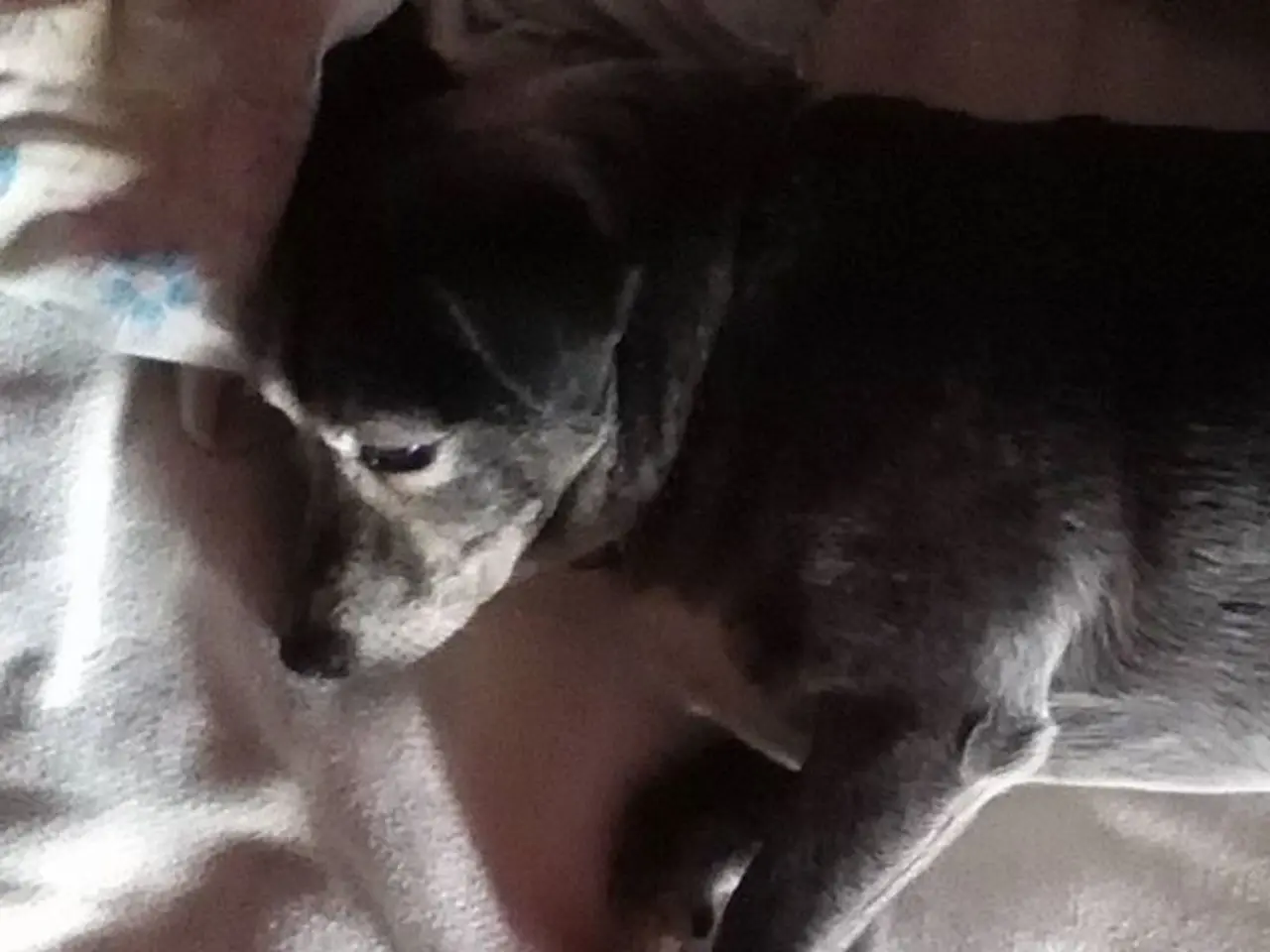Dog Snoring: Common Occurrence or Cause for Concern?
Brachycephalic breeds, such as Pugs and French Bulldogs, are more prone to excessive snoring due to their unique anatomy and other contributing factors.
Common causes of excessive snoring in these breeds include their brachycephalic anatomy, obesity, allergies, sleeping position, and underlying health issues.
The brachycephalic anatomy of these breeds results in shortened nasal passages, narrow airways, and sometimes an elongated soft palate, causing labored breathing and snoring due to restricted airflow.
Excess weight adds fat deposits around the airway, further restricting airflow and increasing the risk of snoring and noisy breathing, particularly in brachycephalic dogs already prone to breathing difficulties.
Environmental allergens like dust and pollen, or food allergies, can cause airway inflammation, leading to snoring. Other symptoms might include itching, licking the feet, ear infections, or sneezing.
Dogs sleeping on their backs can experience airway obstruction, worsening snoring sounds. Underlying health issues such as respiratory infections, nasal congestion or blockages, dental problems, and conditions like sleep apnea (which involves pauses in breathing during sleep) can also contribute to excessive snoring.
Age-related tissue changes that may exacerbate airway narrowing and thicker necks placing more pressure on airways are additional contributing factors.
However, if a dog is snoring only occasionally or at particular times of the year, a vet appointment is not necessary until the next routine check-up, unless the dog deteriorates. In some breeds, snoring is extremely common, such as Pugs and French Bulldogs due to Brachycephalic Obstructive Airway Syndrome (BOAS).
Senior dogs who have started snoring need a check-up to investigate any underlying issues. The snoring sound is due to the vibration of tissues in the throat. Loud snoring is more concerning than a quiet one, as it's more common in dogs with narrower airways.
Signs that a dog needs an urgent veterinary appointment include fast breathing (more than 40 breaths in a minute when sleeping) or continuous panting, struggling to breathe, blue-tinged lips or tongue, snoring accompanied by coughing or collapse.
At home, changing a dog's bed or using a humidifier might help reduce the volume of a dog's snore. However, it's recommended to consult a vet before trying any dog snoring remedies.
In summary, excessive snoring in brachycephalic breeds is typically due to their structural airway challenges, compounded by factors like obesity, allergies, and health issues. It's essential to monitor a dog's snoring patterns and consult a vet if concerned about excessive or loud snoring.
[1] Veterinary Practice News. (2021). Snoring dogs: What pet parents need to know. Retrieved from https://www.veterinarypracticenews.com/snoring-dogs-what-pet-parents-need-to-know/
[2] American Kennel Club. (2021). Snoring in dogs: Causes, symptoms, and treatment. Retrieved from https://www.akc.org/expert-advice/health/snoring-in-dogs-causes-symptoms-and-treatment/
[3] PetMD. (2021). Why does my dog snore? Retrieved from https://www.petmd.com/dog/care/why-does-my-dog-snore
[4] Hill, J. (2020). Brachycephalic Obstructive Airway Syndrome (BOAS) in dogs. Retrieved from https://www.bluecross.org.uk/pet-advice/brachycephalic-obstructive-airway-syndrome-boas-dogs
[5] The American Veterinary Medical Association. (2020). Snoring in dogs. Retrieved from https://www.avma.org/resources/pet-owners/petcare/snoring-dogs
In the world of health-and-wellness for dogs, especially brachycephalic breeds like Pugs and French Bulldogs, excessive snoring is a concern that might be related to their unique anatomy. This snoring can stem from shortened nasal passages, narrow airways, or an elongated soft palate due to brachycephalic anatomy, leading to mental-health issues such as sleep disturbances for the dog and the owner.




